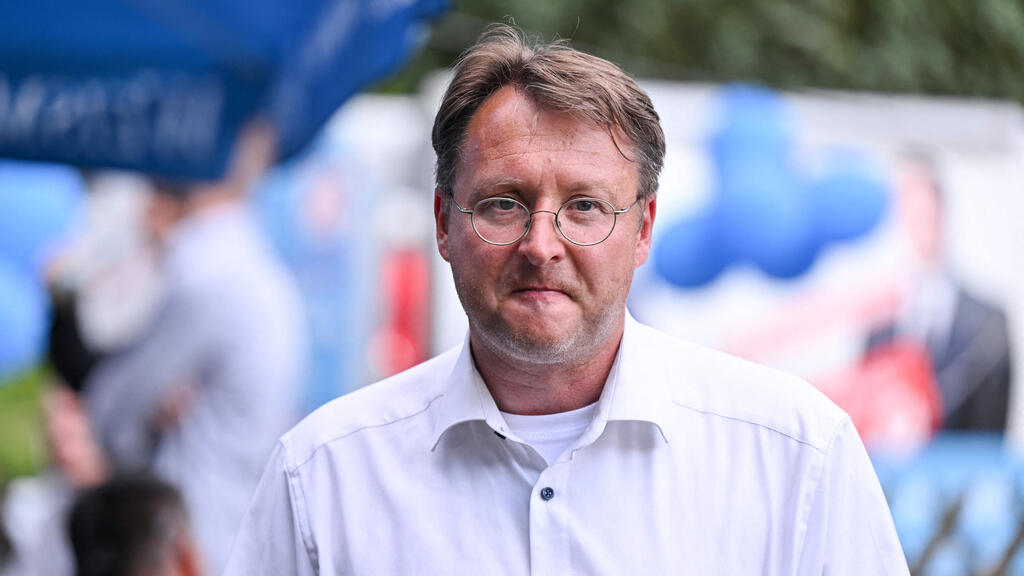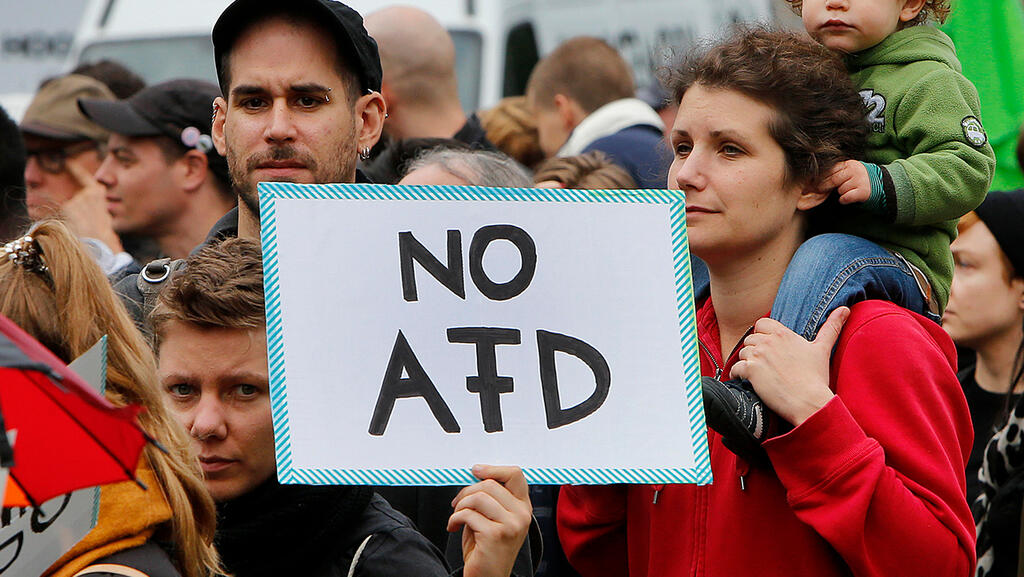The far-right political party Alternative for Germany (AfD) achieved a historic victory on Sunday, claiming the leadership of one of the state districts for the first time in its history.
Read more:
The triumph came in local elections in the Zonberg district of the state of Thuringia, at a time when the party stands in second place in national polls with a support rate of 18%-20%, a figure unprecedented in its 10 years of existence. Only the center-right party surpasses it.
2 View gallery


Robert Sesselmann of the far-right Alternative for Germany (AfD) party was elected in the Zonberg district of the state of Thuringia
(Photo: AFP )
The takeover of the Zonberg district by the AfD was made possible by the victory of the party's candidate, Robert Sesselmann, in the decisive second round against the center-right candidate Jürgen Kapfer, with 52.8% of the votes. Zonberg has a relatively small population of about 56,800 people, but this victory serves as a symbolic milestone for the AfD.
It is seen as a resonating message to the government in Berlin, especially considering that all the other parties in Zonberg joined forces in an attempt to prevent the AfD's victory there.
The AfD, which has been previously accused of antisemitism and hatred toward immigrants and was branded by its opponents as "Nazis in suits," has been gaining traction in recent months despite disappointing performances in polls. This comes amid growing dissatisfaction with the center-left government led by Chancellor Olaf Scholz, who assumed office at the end of last year. His unconventional coalition includes the Green Party and the economically liberal Free Democrats party. Criticism of the government has intensified due to high inflation, the influx of immigrants to Germany, the plan to replace millions of home heating systems, and internal power struggles.
2 View gallery


All the other parties in Zonberg joined forces in an attempt to prevent the AfD's victory there
(Photo: AP)
The far-right party succeeded in entering the German Parliament for the first time in 2017. It did so following a campaign in which it strongly criticized Chancellor Angela Merkel's government for allowing large numbers of immigrants from the Middle East and Africa to enter the country and settle there amid wars and poverty in their home countries. Recently, the party has emphasized its opposition to German support for Ukraine in its war against Russia and expressed resistance to the imposition of economic sanctions on Moscow. In addition, it challenges the notion that humans are the main cause of climate change.
Mainstream parties in Germany typically rule out any possibility of a coalition with the AfD due to its radical positions. However, over the years, it has managed to establish itself as a significant and persistent force in German politics, particularly in eastern Germany, a region that was formerly under communist rule and remains the less prosperous part of the country.
The party is constantly under scrutiny by Germany's domestic intelligence service due to concerns about its potential involvement in hate crimes and terrorism. Just this month, the service warned that the far-right is the greatest threat to democracy in Germany and cautioned voters against supporting the AfD.
The state of Thuringia, where the Zonberg district is located, is one of three states scheduled to hold local elections next year, and according to polls, the AfD may win in these elections. Alternative for Germany also intends to present its own candidate for the position of chancellor in the general elections scheduled for 2025.

